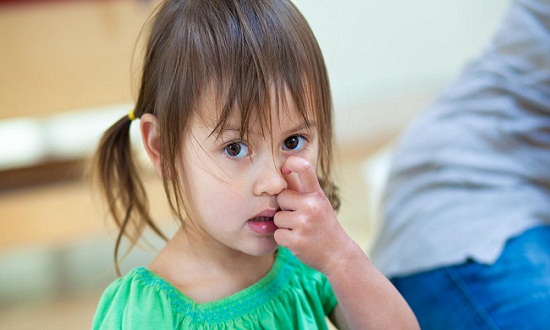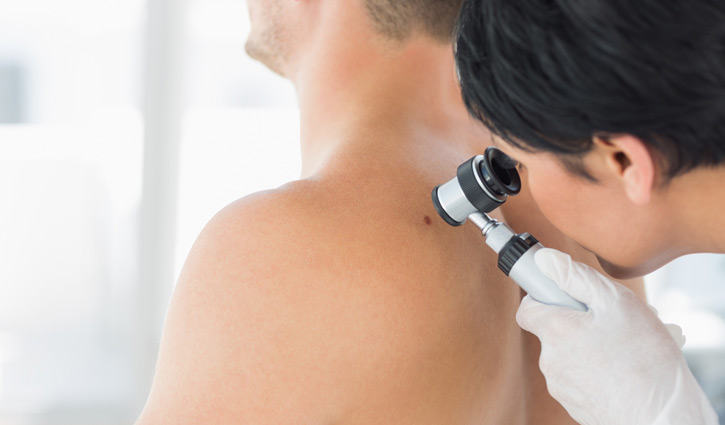During shaving, bloodshed from your cheek? Or do you have unusual sesame seeds? Or is there any acne for a long time? These may be signs of skin or skin cancer. Here are 5 signs of skin cancer and 7 risks of it.
* Mole or sesame
When you think of skin cancer, you will notice brown or black molasses or sesame seeds. There are several types of skin cancer. The main type is the basal cell, squamous and melanoma. The basal cell is the most common type. The second is the squamous cell, according to the Skin Cancer Foundation report. Melanoma is rare, but the most deadly. One of the 19 people who have been diagnosed with melanoma died, while one in 300 people with basal cell or squamous cancer have died. “It is important to identify the problem.” Some melanomas sesame or mole can actually be like a skin color or pale red – they are known as amalactic melanoma, according to a renowned surgical surgeon and cosmetic dermatologist in the US, Heimovic. Challenging to identify this type of melanoma is challenging because we believe it is a silly bump. Dermatologists should regularly check the skin because of this.
* Problems with shaving
If you see that bleeding after shaving, then it is not a matter of neglect. Dr. Heimovic said, ‘Basal cell carcinoma and squamous cell carcinomas may cause bleeding after shaving, or other small trauma, and sometimes there may be spontaneous bleeding without any stimulus occurrence. This happens, because skin cancer is more fragile than healthy skin. ‘
* Family history
Melanoma has a family history of one in every ten people who have been diagnosed. Family malignant refers to the melanoma family, where there are two or more first-degree relatives (such as mother, father, brother, sister or child) in the melanoma. Familial malignant melanoma melanoma increases the risk by 50 percent.
* Rashes or acne that is not going away
Dr. Heimovic said, “Basal cell can see carcinoma white or skin-like or pale red, which does not go away by itself or the same place again.” Usually rash or acne goes away within two to three weeks, if any rash If acne is longer, it should be tested by dermatologist.
* Black spots on nails
If you see a black vertex stain on the fingers of your fingers or toes, then you might think that it has happened to hurt somewhere. But watch it well. Dr. Steven Wang, founder of Wang Herbal SkinCare, said, “If there are different shades of brown or black colored stains on the nails, then it is a matter of concern. Also, the length of the stain will be more than three millimeters, another interesting feature. ‘
* One sesame is not the same as the others
Dr. Wang said, ‘A reddish or light brown color til can be a sign of skin cancer among many sesame seeds. In case of skin cancer, a sesame would be different from others. If the sesame is unusual or relatively large in the sesame pattern, you can determine if it is actually cancer.
7 Risks of Skin Cancer
* Your PVA treatment has been done
Pissoran and UV-light treatment (PVA) is done in the case of acute bad conditions (such as psoriasis and dermatitis) of the skin. It is a type of ultraviolet radiation treatment. Researchers at Harvard Medical School once saw an increased risk of malignant tumors after 15 years in a patient who was treated with PUVA. In fact, patients who have treated PVA 250 or more times have the risk of skin cancer, which is five times higher than those who did not receive this treatment. As time passes, risk increases.
* Had your HPV infection
Some types of Human Papilloma Virus (HPV) that infect genital and anus, increase the risk of non-melanoma skin cancer. According to a study published in the American Journal of Epidemiology, people who had antibodies against HPV had high risk of developing non-nanomas.
* Your immune system is weak
People with weak immune system have high risk of skin cancer due to disease or some treatment. For example, there may be an increased risk of HIV / AIDS and lymphoma patients, and those who have taken chemotherapy or have taken medicines that cause pressure on immunity.
* Have your XP gene
Geroderma pigmentosum (XP) is a rare hereditary disorder. According to the National Library of Medicine, people with this disease have excessive sensitivity to the Sun’s ultraviolet light. These genes limit the ability of skin cells to repair DNA damage. According to the American Cancer Society, young people with Xp genes have high risk of melanoma and other skin cancer. This condition usually exposes symptoms to parts that come in contact with the eye and sunlight.
* You work on chemicals in the industry
People who work on chemicals (such as steel and iron or coal-fired and aluminum products) work on chemicals, according to a study published in High, Biomedical Research International. Those who work on industrial carcinogen (such as arsenic and polycyclic aromatic hydrocarbons), they are also at increased risk.
* You already had squamous cell tumors
Before removing squamous cell tumor from your body does not mean that you have been released from it forever. Squamous cell tumors are repeated especially ears, nose, and lips. Usually two years after the surgery, it will be resurrected. Dr. Heimovic said, “You should check your doctor’s previous medical papers during the regular examination of your skin to ensure that your cancer is coming back.”










